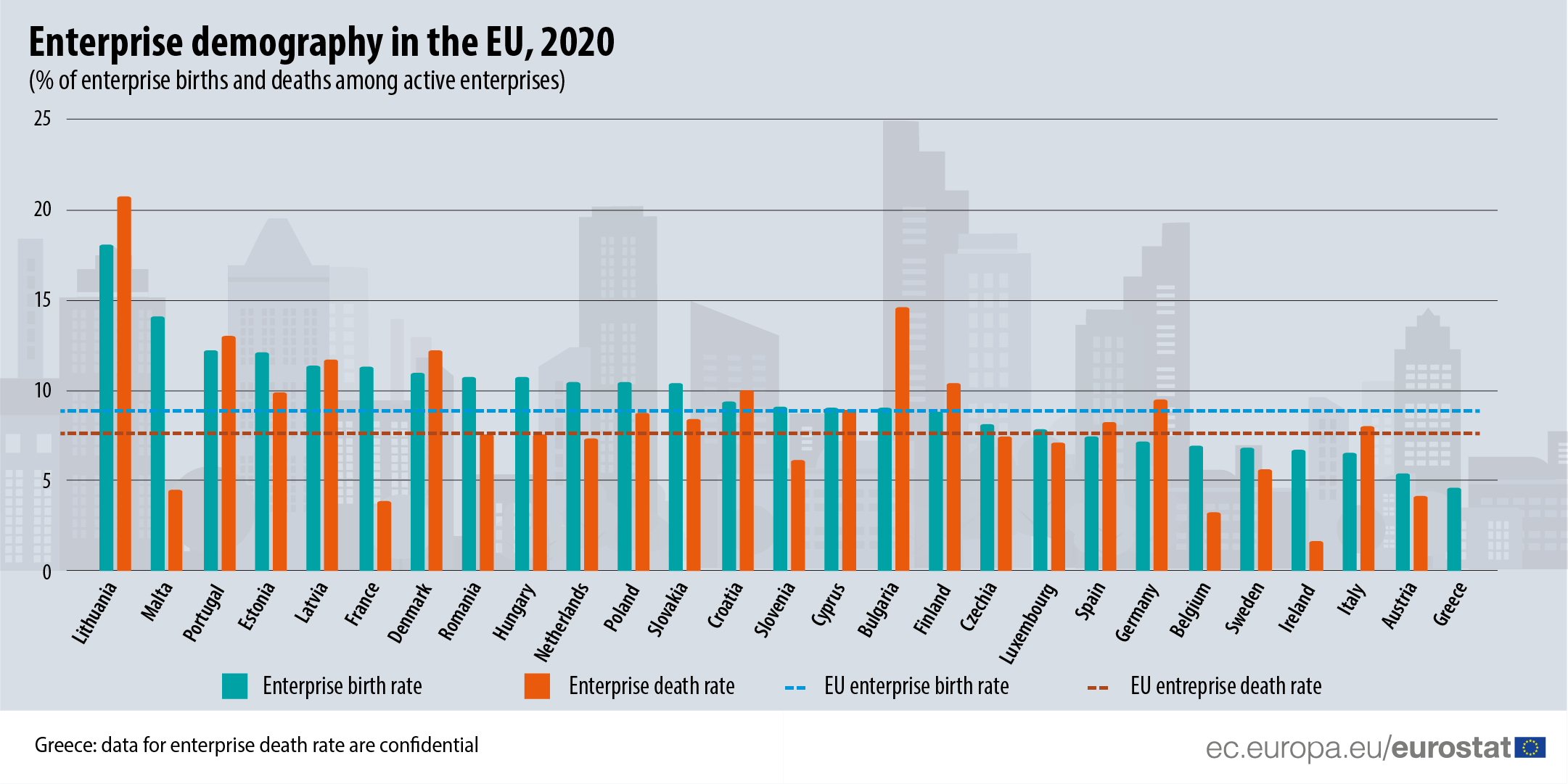November 2, 2022
In 2020, the rate of enterprise births in the EU decreased compared with the previous year by 1.1 percentage points (pp) to 8.9%. Preliminary rates of enterprise deaths (2020: 7.6%) remained about at the same level as the year before, showing some resilience of enterprises during the COVID-19 pandemic.
This information comes from data published by Eurostat today. The article presents a handful of findings from the more detailed Statistics Explained article on structural business statistics.
In 2020, the COVID-19 pandemic disrupted the business environment tremendously, including the temporary shutdown of some business sectors, making many reluctant to start new businesses as the existing ones struggled to keep afloat. In reaction, governments introduced temporary support schemes to offset the impact of the crisis, which may also explain the resilience of the enterprise death rate in 2020.
In 2020, enterprise birth rates among the EU Member States ranged from 4.6% in Greece, 5.4% in Austria, 6.5% in Italy, 6.7% in Ireland, 6.8% in Sweden and 6.9% in Belgium to 11.3% for both France and Latvia, 12.1% in Estonia, 12.2% in Portugal, 14.1% in Malta and 18.1% in Lithuania.
The average employment size of newly born enterprises in 2020 varied from 0.6 persons in the Netherlands to 2.1 persons in Greece. In terms of the EU, the average size of newly born enterprises was 1.2 persons, down from 1.3 in 2019.
As for enterprise preliminary death rates, Ireland registered the lowest value at 1.6%, followed by Belgium (3.2%), France (3.9%), Austria (4.1%) and Malta (4.5%). The highest enterprise death rates were recorded in Lithuania with 20.8%, followed by Bulgaria (14.6%), Portugal (13.0%), Denmark (12.2%) and Latvia (11.7%).
Source: Eurostat
Legal Notice: The information in this article is intended for information purposes only. It is not intended for professional information purposes specific to a person or an institution. Every institution has different requirements because of its own circumstances even though they bear a resemblance to each other. Consequently, it is your interest to consult on an expert before taking a decision based on information stated in this article and putting into practice. Neither Karen Audit nor related person or institutions are not responsible for any damages or losses that might occur in consequence of the use of the information in this article by private or formal, real or legal person and institutions.







